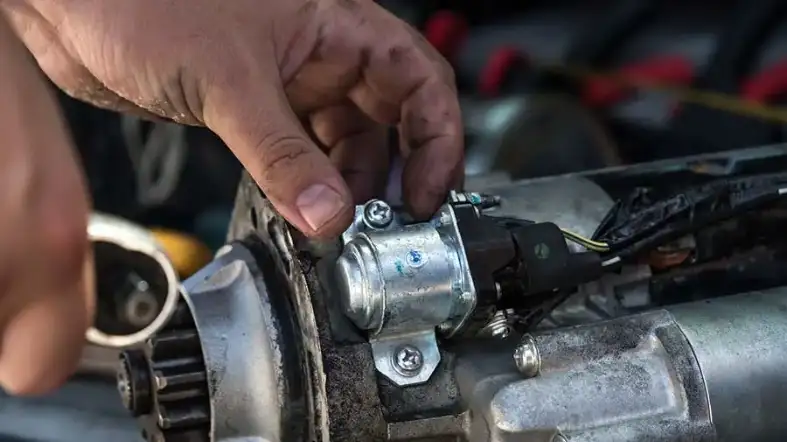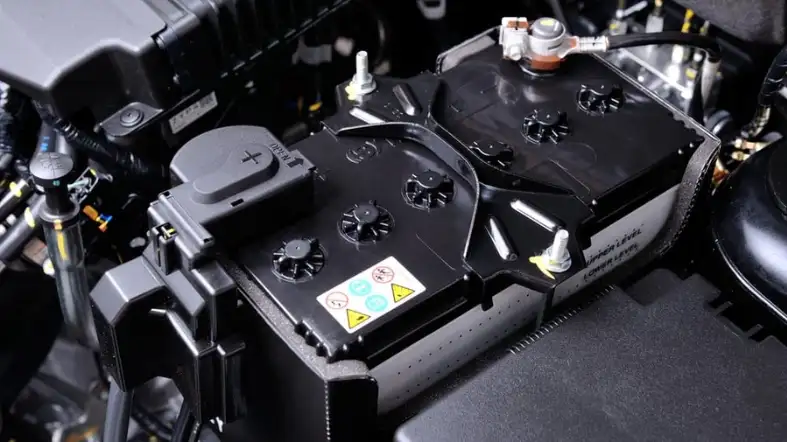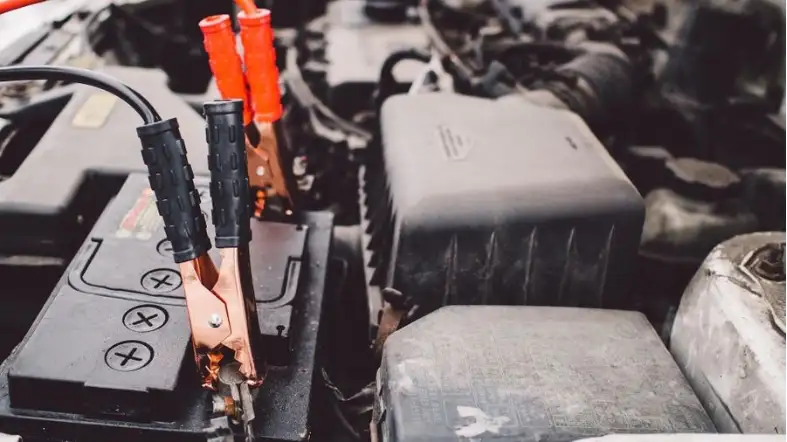Have you ever experienced the frustrating situation of trying to start your car, only to be met with silence or a feeble, sluggish attempt from your engine?
You might have blamed it on a dead battery, but what if the culprit is actually a bad starter?
That’s right, a faulty starter can actually drain your car’s battery, leaving you stranded and with a hefty repair bill.
In this blog, we’ll dive into the nitty-gritty details of how a bad starter can drain a battery and what you can do to prevent it
Can a bad starter drain a battery?
Yes, a bad starter can drain a battery. When a starter motor malfunctions, it can cause the battery to drain faster than usual, especially if you attempt to start the engine multiple times.

This is because a faulty starter can draw more current than usual, putting a heavy load on the battery.
If you suspect that your starter is bad, it’s best to have it inspected and repaired by a mechanic as soon as possible to avoid any further damage to your vehicle’s electrical system.
How does a bad starter drain the battery?
A bad starter can cause your car’s battery to drain in several ways. Here are some possible explanations:
1. Frequent Cranking Attempts:
When you have a bad starter, your car may require multiple cranking attempts before it can start.
Each time you turn the key, the starter motor draws power from the battery to turn the engine.
If the starter is faulty, it may require more energy than usual to get the engine running.
This repeated cranking can quickly drain the battery’s charge, leaving it weak or completely dead.
2. Short Circuits:
A bad starter can also cause a short circuit in your car’s electrical system. When you turn the key, the starter sends an electrical signal to the battery, which in turn sends power to the starter motor.
A wrong starter may send too much power or the wrong kind of power, which can overload the electrical system and cause a short circuit.
A short circuit can cause a rapid drain on the battery’s charge, leading to a dead battery.
3. Corroded or Loose Connections:
Another way a bad starter can drain the battery is by causing corrosion or looseness in the electrical connections.
The connections between the battery, starter, and alternator need to be clean and tight for the electrical system to function properly.
A bad starter can cause corrosion or looseness in these connections, which can disrupt the flow of power and cause the battery to drain.
4. Parasitic Drain:
Sometimes, a bad starter can cause a parasitic drain on the battery. This means that something in the electrical system is drawing power even when the car is turned off.
A faulty starter can be one of the culprits causing this parasitic drain, along with other components like the alternator or the radio.
If your car’s battery is consistently draining even when the car is not in use, it could be a sign of a parasitic drain caused by a bad starter.
How To Know If Your Starter Is Draining The Battery?

If you’re having trouble starting your car, and you’ve noticed that your battery seems to be draining more quickly than usual, it’s possible that your starter is the culprit.
Here are some signs to look out for to help you determine if your starter is draining the battery:
1. Slow cranking:
When you turn the key in the ignition and your car engine cranks slowly or takes longer than usual to start, it might indicate that your starter is struggling to turn over the engine.
This can put extra strain on your battery, causing it to drain more quickly.
To check if your starter is the culprit, pay attention to the speed and sound of the cranking noise.
If it sounds weak or labored, and the engine starts sluggishly, it’s likely that the starter is draining your battery.
2. Clicking sounds:
If you hear repetitive clicking sounds when you attempt to start your car, it may be a sign that your starter is not engaging properly.
When the starter motor tries to connect with the engine but fails to do so, it creates a rapid clicking noise.
This continuous attempt to engage can result in a drained battery.
If you notice this clicking sound without the engine actually starting, it’s crucial to have your starter checked by a professional to prevent further battery drainage and potential starter failure.
3. Electrical issues:
Electrical problems in your car can also indicate a drain on the battery caused by the starter.
Keep an eye out for symptoms such as dimming headlights, flickering dashboard lights, or a radio that turns off when you try to start your car.
These issues can occur because the starter is drawing excessive power from the battery, affecting other electrical components.
If you experience any of these electrical malfunctions, it’s advisable to have your starter inspected and repaired to prevent further battery drain and potential damage to other electrical systems.
4. Smell of burning:
A burning odor when attempting to start your car can be a sign that your starter is overheating.
The starter motor works by drawing electrical current from the battery and converting it into mechanical energy to start the engine.
If the starter becomes overheated due to prolonged cranking or a malfunction, it can emit a burning smell.
Not only does this indicate a potential drain on your battery, but it can also lead to damage to the starter and other engine components.
It’s crucial to address this issue promptly to avoid further battery drainage and potential costly repairs.
5. Jumpstarting:
If you find yourself frequently needing to jumpstart your car, it’s likely that your starter is draining the battery.
Jumpstarting can provide a temporary solution by using another vehicle’s battery to power your own, allowing you to start the engine.
However, if the underlying issue with the starter is not resolved, you may find yourself relying on jumpstarts more and more frequently.
It’s important to have your starter inspected and repaired to ensure proper functioning and prevent unnecessary battery drain.
Remember, jumpstarting should only be used as a temporary measure while addressing the root cause of the problem.
How to prevent battery drain from a bad starter?

If you’re experiencing battery drain from a bad starter, there are several steps you can take to prevent further damage and extend the life of your battery. Here are a few tips:
1. Identify the problem:
Before taking any action, it’s important to determine if the starter is actually the culprit.
If your car won’t start or is slow to start, it could be due to a variety of issues, including a dead battery, faulty alternator, or corroded connections.
Have a professional mechanic inspect your vehicle to accurately diagnose the issue.
2. Disconnect the battery:
If you know that the starter is causing battery drain, disconnect the battery when the vehicle is not in use.
This will prevent the starter from drawing power and draining the battery.
3. Keep your battery charged:
A weak or dead battery is more susceptible to damage from a bad starter.
Regularly charging your battery will help keep it in good condition and reduce the risk of damage.
4. Limit short trips:
Short trips do not allow the battery to fully recharge, which can cause the battery to become weak and more prone to damage from a bad starter.
If possible, limit short trips or consider using a battery charger to keep the battery fully charged.
5. Address the starter issue:
Eventually, you’ll need to address the issue with your starter. Depending on the severity of the issue, this may involve repairing or replacing the starter.
It’s important to address the issue as soon as possible to prevent further damage to your battery and other components of your vehicle.
6. Avoid jump-starting:
Jump-starting your vehicle can be tempting when you have a dead battery, but it’s important to avoid doing so if you suspect the starter is the issue.
Jump-starting can put additional strain on the starter and cause further damage.
FAQs
Q. How Long Does A Bad Starter Last?
A: The lifespan of a starter can vary depending on a few factors, such as how often you use your car and how well you maintain it.
On average, a starter can last anywhere from 50,000 to 100,000 miles.
However, if you’re experiencing any issues with your starter, it’s important to have it checked out and repaired as soon as possible to prevent further damage.
Q. Can A Bad Starter Drain A Brand-New Battery?
A: Yes, even a brand-new battery can be drained by a bad starter if it’s constantly drawing power.
It’s important to have any starter issues addressed as soon as possible to prevent damage to your battery and other electrical components in your car.
Q. How Much Does It Cost To Replace A Bad Starter?
A: The cost of replacing a starter can vary depending on the make and model of your car and the cost of the replacement part and labor.
On average, you can expect to pay anywhere from $300 to $600 for a starter replacement.
It’s always a good idea to get a few quotes from different mechanics to find the best price.
Conclusion
A bad starter can definitely drain your car battery.
A faulty starter motor will not only cause starting problems but can also put an unnecessary load on your battery, which can eventually drain it.
If you’re experiencing slow or hesitant starting, or if you notice any unusual noises coming from your starter, it’s best to have it checked out by a professional mechanic.
Ignoring the problem can lead to more serious and expensive issues down the road.
